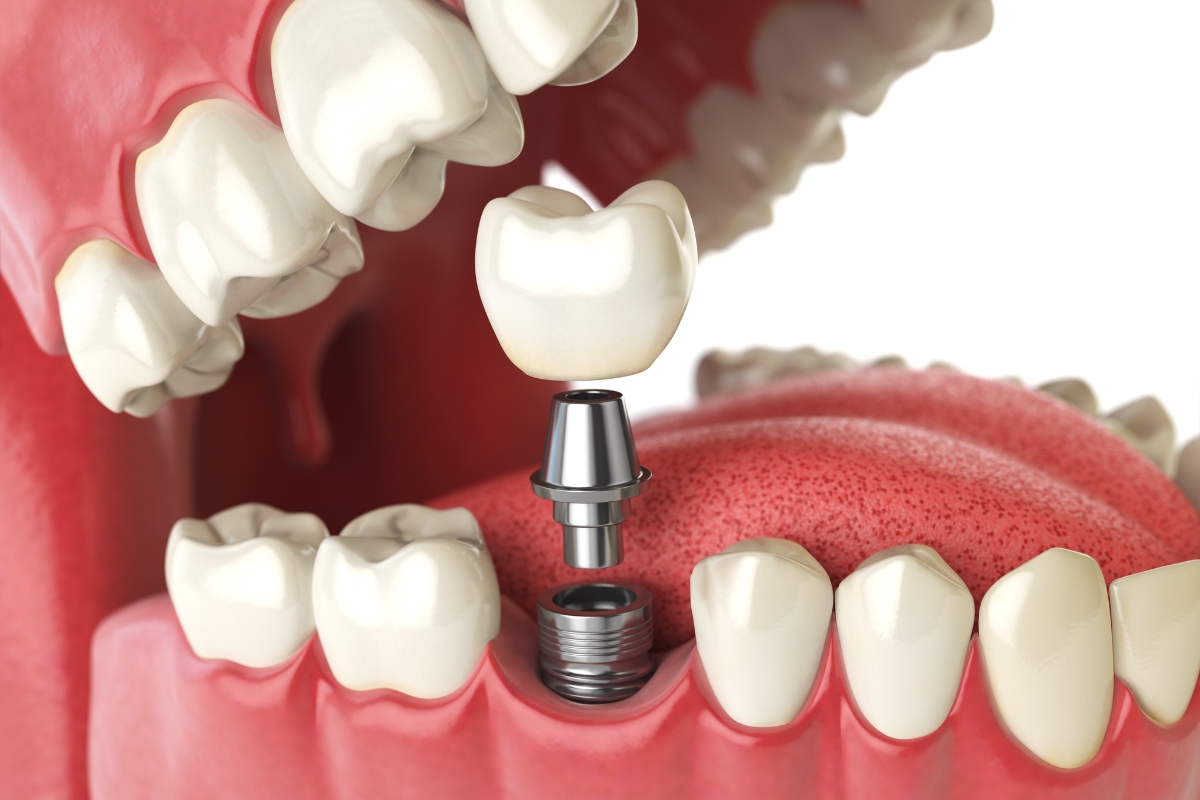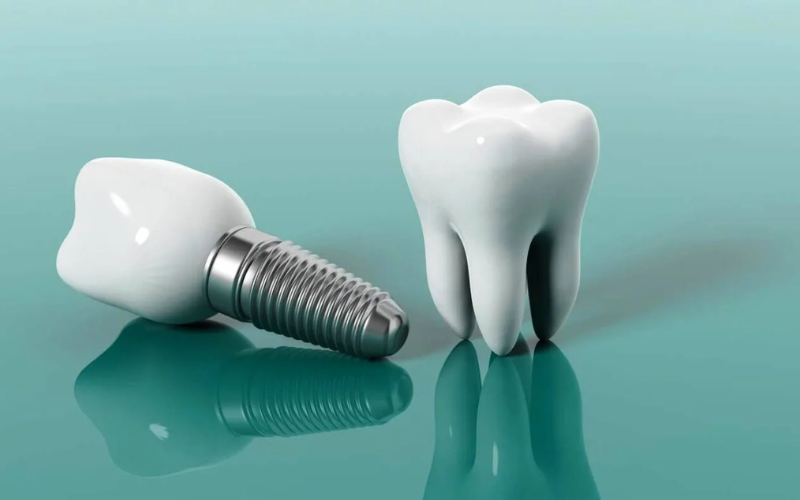5761 SE Federal Hwy, Stuart, FL 34997
Red Flags: 7 Warning Signs Of Dental Implant Trouble

Dental implants are a popular and effective solution for replacing missing teeth, offering long-term benefits and restoring function and aesthetics. However, like any medical procedure, dental implants come with potential risks and complications.
Knowing the warning signs of dental implant trouble is crucial to ensuring that your implants stay healthy and functional. In this blog, we will explore seven red flags that could indicate your dental implants are facing issues.
Signs Your Dental Implant May Be at Risk
1. Persistent Pain or Discomfort
A little discomfort after the dental implant procedure is normal, especially in the initial days following surgery. However, if you feel persistent pain or discomfort around the implant site long after your healing period, this could be a red flag. Ongoing pain might indicate infection, implant failure, or improper placement.
What to Look For:
- Pain that doesn’t subside over time.
- Pain that increases when chewing or biting.
- Sensitivity to temperature or pressure.
What to Do:
Contact the dentist as soon as possible for an evaluation. An X-ray may be needed to assess the implant and surrounding bone structure.
2. Swelling or Inflammation
Some swelling around the implant site is expected during the healing phase. However, swelling that continues for weeks or worsens over time can be a sign of an infection or an issue with the implant integration.
What to Look For:
- Swelling that lasts beyond the typical healing period.
- Redness or irritation around the gums.
- Pus or discharge from the gums.
What to Do:
Persistent swelling could be caused by an infection, so it’s important to visit a dentist immediately. They can prescribe antibiotics or suggest further treatments if needed.
3. Loose or Shifting Implant
A dental implant should be securely integrated with the jawbone and should not move. If you notice that your implant feels loose or shifts when you chew or touch it, this could be a sign that the implant has not successfully fused with the bone (a process known as osseointegration) or that the bone around the implant has weakened.
What to Look For:
- The implant feels loose or wobbly.
- You can feel movement when biting or chewing.
- Your implant feels “off” compared to natural teeth.
What to Do:
If the implant feels loose, it’s crucial to contact our dentist immediately. In some cases, the implant may need to be removed and replaced, or additional bone grafting may be required.
4. Gum Recession Around The Implant
Gum recession is a natural part of aging, but if the gums around your dental implant begin to recede too quickly or expose the metal post, this can indicate trouble. Gum recession can lead to increased sensitivity and further complications, such as implant failure or infection.
What to Look For:
- Gums receding around the implant site.
- Visible metal post or root of the implant.
- Sensitivity or discomfort in the exposed area.
What to Do:
Gum recession could be due to infection or improper implant placement. The dentist may recommend a soft tissue graft or other treatments to restore gum health and prevent further recession.
5. Infection Signs (Foul Odor or Taste)
An infection around the dental implant is a serious issue that requires prompt attention. If you notice a persistent foul odor or a bad taste in your mouth, this could be a sign of infection in the tissues surrounding the implant.
What to Look For:
- A bad taste or odor near the implant site.
- Swollen, red, or tender gums.
- Fever or general malaise.
What to Do:
An infection around the implant can lead to implant failure if left untreated. Make an appointment with our dentist immediately for an evaluation and possible antibiotic treatment.
6. Numbness or Tingling Around The Implant Area
Experiencing numbness or tingling in the gums or lips around the dental implant site is abnormal and could indicate nerve damage. Nerve injury may occur if the implant is placed too close to nerve endings, and it could affect the feeling in your face or mouth.
What to Look For:
- Numbness in the gums or lips near the implant.
- A tingling or burning sensation.
- Lack of sensation around the mouth or teeth.
What to Do:
If you feel these sensations, contact our dentist immediately. Nerve damage may require revision surgery or a change in implant placement to prevent long-term issues.
7. Excessive Bone Loss Around The Implant
Bone loss is one of the most serious complications of dental implants. Over time, if the bone fails to heal around the implant or the implant becomes loose, bone loss can occur. This condition can lead to implant failure, and if left untreated, it can compromise the stability of your surrounding teeth.
What to Look For:
- Visible shrinkage or sagging of the gum line.
- Reduced bone density around the implant site (visible on X-rays).
- Decreased support for the implant.
What to Do:
If you notice bone loss around the implant, a dentist may recommend a bone graft procedure to restore the bone structure and support the implant. Early intervention can prevent further damage.
When Should You Seek Help for Dental Implant Issues?
It’s important to monitor your dental implants regularly, even after the initial healing process. If you notice any of the warning signs listed above, it’s crucial to consult with our dentist as soon as possible. Ignoring these red flags can lead to more serious issues, including implant failure and the need for additional treatments.
Stay Proactive with Dental Implant Care
Dental implants can dramatically improve your smile and quality of life, but like any dental procedure, they come with the risk of complications. Recognizing the warning signs of dental implant trouble early on can help prevent more severe issues and ensure the longevity of your implants.
Always stay proactive about oral hygiene, follow the dentist’s aftercare instructions, and schedule regular checkups to keep your dental implants in top shape. If you go through any of the red flags discussed above, don’t hesitate to contact our dentist for an evaluation and treatment.
By staying informed and vigilant, you can continue to enjoy the many benefits that dental implants provide without complications.




